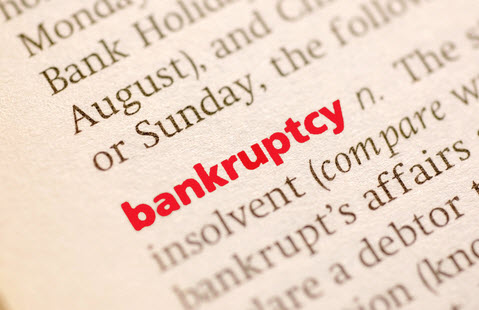Statistics About Bankruptcy in Alabama
Unless you live in a rarefied environment where everyone you know is a member of the top one percent in terms of wealth, it is already obvious to you that consumer debt is an enormous problem in the United States. If you are in debt, it is of little consolation that others are in debt, too. Of course, if you are a creditor trying to collect debts from financially strapped borrowers, it is even less consolation. According to the law, there is only so much you can do before everyone agrees that the borrower simply cannot pay. Despite what you might expect, a borrower declaring bankruptcy does not automatically make it impossible to collect debts from them. That is encouraging news for creditors, because bankruptcy is becoming increasingly widespread. If someone who owes you money declares bankruptcy, do not despair. Instead, contact an Alabama creditors’ rights lawyer.
Alabama Bankruptcy by the Numbers
- In 2005, a federal law introduced a new type of bankruptcy, known as chapter 13 bankruptcy, by which creditors can still recover some of the debts the borrower owed them before filing bankruptcy. By contrast, chapter 7 bankruptcy erases the borrower’s debts but makes it very difficult to avoid foreclosure of their house or to obtain credit in the foreseeable future.
- Although most businesses close within their first few years, they account for only a small share of bankruptcies. Since 2005, 97 percent of chapter 7 bankruptcies and 99 percent of chapter 13 bankruptcies have been individuals who filed for bankruptcy because of consumer debt.
- Since 2005, chapter 7 bankruptcy filings have outnumbered chapter 13 bankruptcy filings by a ratio of about two to one.
- According to the federal law known as BAPCPA, consumers are only eligible for chapter 7 bankruptcy if their income over the past six months is lower than the state median for a household of the same size. If it is higher, they must file for chapter 13 bankruptcy.
- Chapter 13 bankruptcy is highest in the Deep South. Alabama is the state with the highest rate of chapter 13 bankruptcy filings, with one household out of every 112 filing for chapter 13 bankruptcy. This rate is more than three times the national average. Following Alabama, the states with the highest rates of chapter 13 bankruptcy filings are Tennessee, Louisiana, Georgia, and Mississippi. Alaska has the lowest rate of chapter 13 bankruptcy filings.
What Is a Creditor to Do?
Chapter 13 bankruptcy is designed to help people in debt avoid losing their houses to foreclosure. Its intended candidates are people whose income is high enough to afford more than just the bare necessities. When people file for chapter 13 bankruptcy, they must commit to a plan of using their disposable income to pay off unsecured debt. If you are a creditor to whom some of that unsecured debt is owed, contact a creditors’ rights lawyer.
Let Us Help You Today
Creditors can still collect debts from debtors who have declared chapter 13 bankruptcy, even if the debt is unsecured. Contact the Alabama creditors’ rights attorneys at Cloud Willis & Ellis for a consultation about your bankruptcy case.
Resource:
uscourts.gov/news/2018/03/07/just-facts-consumer-bankruptcy-filings-2006-2017


